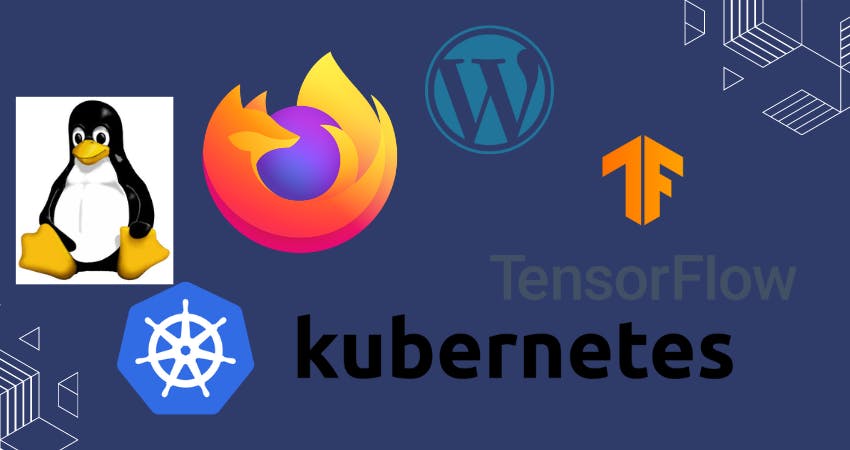Open Source: The Future of Software Development
Exploring the Benefits, Case Studies, and Ways to Get Involved in the Open Source Community.
Introduction
"Alone we can do so little; together we can do so much." - is a quote by Helen Keller on teamwork fits best with our today's topic. We need teamwork because it allows us to accomplish tasks and achieve goals that we couldn't achieve alone. Teamwork brings together a diverse group of individuals with different skills, experiences, and perspectives, which can lead to more creative and effective solutions. It enables individuals to collaborate, share knowledge and work towards a common purpose. Working in a team allows for a division of labor, where different members of the team can take on specific roles and responsibilities. This can increase efficiency and productivity, as members can focus on tasks that they are best suited for and excel at.
In the world of software development, open source has become a hot topic and it is a real example of teamwork. But what exactly is open source and why is it so important?
Open source refers to a type of software whose source code is available for anyone to use, modify, and distribute. This means that anyone can take the code, make changes to it, and share it with others. This is in contrast to proprietary software, which is owned by a company and only available for use under specific terms and conditions.
We can understand this simply by an example. Suppose you are organizing a concert in your college and you find it very difficult to do it all on your own. So what you do is prepare a list of things you need to get done to make the event successful. Things such as stage, logistics, tent, catering, printing, advertisement, artist management, etc. Now you put this list on the announcement medium of your college and ask openly that whom so ever can help us get anything done in this list can reach out to us. Now people who are interested in doing such things and who are equally good at it will ask you to collaborate and then you will assign the respective task to them to complete it. Once the event completes successfully you and other teammates will get the credit for the success and your hard work will be appreciated by the users using your service. Similarly, open source refers to a type of software whose source code is available for anyone to use, modify, and distribute and then the completed software comes out in the real world for the public to use it.

Benefits of Open Source
The benefits of open source can be grouped into several categories:
Collaboration and innovation: Open source allows developers from all over the world to collaborate and contribute to a project. This leads to a diverse and large pool of contributors who bring in new ideas, perspectives, and skills. This diversity helps to spur innovation and results in better and more robust software.
Transparency and security: Open source code is publicly available for anyone to examine. This allows for a community of developers to review the code and identify any security vulnerabilities. This is in contrast to closed-source software, where the code is not available for public review, making it harder to detect and fix security issues.
Cost savings: Open source software is usually free to use, distribute, and modify. This can be significant cost savings for organizations, especially for those on a tight budget. Additionally, open source software can be customized to meet the specific needs of an organization, which can save money in the long run.

Flexibility and customization: Open source software can be modified to fit the specific needs of an organization or individual. This allows for more flexibility and the ability to tailor the software to the unique requirements of a business or project.
Community Support: Open source projects have a community of developers and users who are constantly working on improving them and providing support to new users. This results in more robust and stable software, which is much more likely to be supported in the long run.
Education and Skill Development: Open source projects allow developers to learn new technologies and improve their skills by participating in real-world projects.
Open source software can provide many benefits to organizations such as cost savings and security flexibility and innovation. It is a valuable resource that is worth considering for any business. But open source isn't just good for organizations. It's also beneficial for developers. By contributing to open-source projects, developers can build their skills, network with other professionals in their field, and potentially even land a job because no one knows who is watching them. It is also one of the best things to add to your resume.
Case studies of open source in action

Case studies of open source in action can include a wide range of examples from different industries and fields. Some of the most well-known open source projects include:
Linux: Linux is one of the most well-known open source projects and is widely used as the operating system for servers, mainframes, and supercomputers. Linux has been adopted by many organizations, including Google, IBM, and Amazon, and it is a key component of many popular web technologies, such as Apache and MySQL.
WordPress: WordPress is an open source content management system (CMS) that powers more than 40% of the websites on the internet. It is a flexible and powerful platform that is easy to use and customize, making it a popular choice for businesses, bloggers, and e-commerce sites.
Firefox: Firefox is an open source web browser developed by the Mozilla Foundation. It has been widely adopted as an alternative to closed-source browsers like Internet Explorer and Google Chrome. Firefox is known for its speed, security, and customization options.
TensorFlow: TensorFlow is an open source software library for data flow and differentiable programming across a range of tasks. It is widely used in the field of machine learning and deep learning, and it's being adopted by many companies for various use cases, such as image recognition, natural language processing, and speech recognition.
How to get involved in open source

Getting involved in open source can be a great way to learn new skills, meet other developers, and contribute to projects that are important to you. Here are a few ways to get started:
Learn Git and Github: GitHub is a platform that hosts Git repositories, making it easy for developers to share and collaborate on code. It provides a centralized location where developers can access, manage, and contribute to open source projects. It also provides a range of features to support the development process, such as issue tracking, pull requests, and code review.
Find a project: Browse popular open source platforms like GitHub, SourceForge, or GitLab to find a project that interests you. You can check out the Good First Issue website which is designed only for beginners in open source. You can search by language, topic, or organization to find something that aligns with your interests and skills.
Read the documentation: Before you start contributing to a project, make sure you understand how it works. Read the documentation and the project's code of conduct to familiarize yourself with the project's goals, how it's organized, and how to submit contributions.
Start small: If you're new to open source, start with small contributions. This could include fixing bugs, writing documentation, or adding new features. This will help you get familiar with the project and the development process. Always make sure you contribute only after any issue has been assigned to you(you have to ask the Author/owner of the project to assign the task you like to do in the given repository).
Communicate: Open source projects rely on communication and collaboration, so be sure to reach out to the project's maintainers and other contributors. Ask questions, share your ideas, and collaborate with others to make the project better.
Keep learning: Open source is a great way to learn new skills and technologies. Take advantage of the opportunity to work on real-world projects and learn from experienced developers.
Contribute to your community: While you're working on open source projects, also think about how you can contribute to your local community, by contributing to open-source projects of local non-profits, schools, or libraries.
Remember that open source is a community effort and that everyone can contribute regardless of their skill level. Don't be afraid to ask questions, share your ideas, and collaborate with others. With time and effort, you can become an active member of the open source community and make a real impact on the projects you care about.
Wrap Up!

In conclusion, open source software has become an integral part of modern technology and has had a significant impact on many industries. It has led to the development of many powerful and widely-used software, such as Linux, WordPress, Firefox, Kubernetes, and TensorFlow.
To get involved in open source, one can find a project that interests them, read the documentation, start small, communicate, keep learning and contribute to the community. Open source is a community effort and everyone can contribute regardless of their skill level.
Open source is for everyone to participate all you need to do is decide to begin and get started.
Note: Still confused? Don't worry check out this article from freeCodeCamp and you will be all set to make your first contribution.
Open source is waiting for you!
If you have read so far, I really appreciate it.
Do share your valuable opinion, I appreciate your honest feedback!
See you next week.

